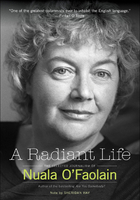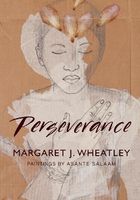I signalized my birthday by giving myself a present since no one else seemed inclined to! I bought it, of course, from Mr Jones, the purser. As I emerged on deck with some relief from the fetor of the ship's bowels I met Charles Summers, my friend and the ship's first lieutenant. He laughed when he saw the manuscript book in my hand.
"The ship was aware, Edmund, that you had finished, that is, filled the book which was a present from your noble godfather."
"But how?"
"Oh, do not be surprised! Nothing can be hidden in a ship. But have you still more news for him?"
"This is not a continuation, but a new venture. When this is filled with an account of our voyage I mean to keep it for myself and no one else."
"There must be little of enough note for recording."
"On the contrary, sir, on the contrary!"
"More reasons for self-satisfaction?"
"And how am I to take that?"
"Why—elevate your nose as usual. Dear Edmund, if you only knew how maddeningly superior you can be—and now a writer into the bargain!"
I did not much care for his mixture of familiarity and amused irritation. For indeed I thought I had cured myself of a certain lofty demeanour, a consciousness of my own worth which had perhaps been too carelessly displayed in the earlier days of the voyage. Had it not gained me, among the common seamen, the nickname of "Lord Talbot"? Of course, "mister" or "esquire" is all I am entitled to.
"I amuse myself. I pass the time. What else can a poor devil of a landsman do to occupy himself in a voyage from the top of the world to the bottom?"
"That is called folio size, is it not? You will need a great deal of adventure to fill it. The first one, for your godfather—"
"Colley, Wheeler, Captain Anderson—"
"And others. I wish sincerely that you will have much more difficulty in filling your second volume!"
"Your wish is granted here and now, for my head is empty. By the way—today is my birthday!"
He nodded gravely but said nothing and went on his way towards the forward part of our vessel. I sighed. I believe it has been the first time my birthday has gone unnoticed by all but myself! At home things would be different, with good wishes and presents. Here in this lumbering ship such modest entertainment, such pleasant customs go by the board.
I went to my "hutch" or cabin, that "little ease" which must serve me for sleep and privacy until we reach the Antipodes. I sat down in my canvas chair before my "writing-flap", my only desk, and cracked the folio open on it. The area was immense. If I bowed my head and peered at the blank surface—as I must, since so little light filters into my cabin—it seemed to spread in every direction until it was the whole of my world. I watched it, therefore, in the expectation that some material fit for permanence would appear—but nothing! It was only after a prolonged pause that I discovered my present stratagem and the full result of it in recording my own, surely temporary inadequacy. That unhappy shrimp of a man, Parson Colley, had nevertheless in his letter to his sister, as far as I could remember, unconsciously used the massive instrument of the English tongue with a dexterity which called up our ship and her people—including me—as if by magic! He had set her there, lolloping in the weather.
Yes, the weather, Edmund, the weather, you fool! Why do you not start with that? We have escaped from the doldrums at least. We were there too long for comfort. We have moved at last out of the fair weather of the equatorial regions and are now pushing south, the wind over our larboard bow so that there is once more a certain unsteadiness in the deck, a constant canting to the right to which I am now so accustomed I accept it and my limbs accept it as normal to living. The present weather is sharply defining our horizon for us in a dense blue which obeys Lord Byron's famous injunction and continues to roll on endlessly—such is the power of verse! I must try it some time. Sufficient and perhaps increasing wind (not, I seem to remember, included by his lordship) moves us slanting, or ought to but seems to have less effect on our vessel than it should. So much for the weather. Colley would have integrated it. But as far as I can see, it has no other effect than to cool our air slightly and set the ink in the well at a slight slant. Edmund, I adjure you! Be a writer!
But how?
There is an inevitable difference between this journal, meant for, for, I do not know for whom, and the first one meant for the eyes of a godfather who is less indulgent than I pretended. In that volume I had all my work done for me. By a remarkable series of strokes of fortune, Colley "willed himself to death" and "my servant" Wheeler drowned and the result was to fill my book! I cannot consult it, for it lies, all wrapped in brown paper, sewn in sailcloth, sealed and stowed away, in my bottom drawer. But I do remember writing towards the end of it that it had become some sort of a sea story. It was a journal that became a story by accident. There is no story to tell now.
Yesterday we saw a whale. Or rather we saw the plume of spray which rose where the creature was snorting, but the beast itself remained hidden. Lieutenant Deverel, that crony from whom to tell the truth I remain anxious to detach myself, remarked that it looked for all the world like the strike of a cannon ball. At this Zenobia Brocklebank shrieked and besought him not to mention anything so frighteningly horrid, a display of proper female weakness—or the appearance of it—which enabled Deverel to move closer, take her unresisting hand and murmur some sort of comfort with a kind of echo of amatory matters in it. Miss Granham, I remember, looked, if not daggers, penknives at least, and moved away to where her fiancé, Mr Prettiman, was extolling the social benefits of revolution to our marine artist, sodden Mr Brocklebank. All that on the poop under the eyes of Lieutenant Cumbershum who with young Mr Taylor had the watch! What else? This is small beer!
Yesterday there was part of a cable laid out in the waist, then wormed, parcelled and served for some mysterious operation of seamanship. It was the only thing to record but a damned dull sight.
What the devil! I need a hero whose career I may follow in volume two. Might it be our gloomy Captain Anderson? I do not think so. There is, for all his uniform, something indomitably unheroic about him. Charles Summers, my friend the first lieutenant? He is our Good Man and therefore only to be tragic if he falls from that small eminence which I do not expect or wish. The others, Mr Smiles, the remote sailing master, Mr Askew, the gunner, Mr Gibbs, the carpenter—why not our tradesman, Mr Jones, the purser? Oldmeadow, the Army officer with his file of greenclad men? I cudgel my brains, call Smollett and Fielding into the ring, ask their advice and find they have none for me.
I should perhaps tell the story of a young gentleman of much intelligence and more feeling than he was aware of who takes a voyage to the Antipodes where he is to assist the governor of the new colony with his undoubted talents for, for something or other. He, he—what? There is a woman in the fo'castle among the emigrants. Might not she be our heroine, a princess in disguise? Might not he, our hero, rescue her—but from what? Then there is Miss Brocklebank of whom I do not desire to write and Mrs Brocklebank with whom I am at present almost entirely unacquainted and who is far too young and pretty to be tunbelly's wife.
Wanted! A hero for my new journal, a new heroine, a new villain and some comic relief to ameliorate my deep, deep boredom.
It will have to be Charles Summers after all. We at least talk and do so with some regularity. Since as first lieutenant he is generally in charge of the ship he does not keep a watch. He seems to move about the ship for something like eighteen hours in the twenty-four and now knows the ship's company, let alone the emigrants and the passengers individually by name. I believe he also knows the fabric of the ship inch by inch. His only break as far as I can see is for an hour in the forenoon—perhaps from eleven to twelve when he walks the deck like a man taking a constitutional. Some of the passengers do likewise and I am happy and really rather proud to say that Charles commonly chooses me as his walking companion! A pattern has settled into a custom. He and I walk back and forth the length of the waist on the larboard side of the ship, Mr Prettiman and his fiancée Miss Granham do the same on the starboard side. By common consent we do not walk as a group of four but in two pairs. Thus just as they are turning to come back from the break of the fo'castle so we are turning to come back from the break of the aftercastle! As we move towards the midpoint the bulk of the mainmast hides our two pairs from each other so we do not have to raise our hats or incline the head smilingly at each passing! Is that not trivially absurd? Only the interposition of a lumpish column of wood preserves us from having to employ all the actions of landlubberly conduct!
I said as much to Charles the other forenoon and he laughed.
"I had not considered the matter but I suppose it is so; and a piece of neat observation!"
"The 'proper study of man' and most necessary to one who intends to be a politician."
"You have your career charted?"
"Yes indeed. And more precisely than most men of my years."
"You excite my curiosity."
"Why—I shall spend a few years—a very few years—in the administration of the colony."
"May I be there to see!"
"Mark me, Mr Summers, in this century I am convinced the civilized nations will more and more take over the administration of the backward parts of the world."
"And then?"
"Parliament. My godfather has what is commonly called 'a rotten borough' in his pocket. It sends two members to the house and the only electors are a drunken shepherd and a cottager who spends the weeks after an election in a state of indescribable debauchery."
"Should you profit by such excess?"
"Well, there are difficulties. Our wretched estates are heavily encumbered and since a seat in the house is only tenable by a man of means I must pick up a plum or two."
Charles laughed aloud, then stopped himself abruptly.
"I ought not to find that amusing, Edmund, but I do. A plum or two! And then?"
"Why—government! The cabinet!"
"What ambition!"
"You dislike that side of my character?"
Charles was silent for a while, then spoke heavily.
"I have no right to. I am just such a creature myself."
"You? Oh no!"
"In any event, I find you profoundly interesting. I hope sincerely that your career may prosper to your own satisfaction and the benefit of your friends. But does not the country begin to frown on 'rotten boroughs'? For is it not against reason and equity that a handful of English people should elect the assembly which will govern all?"
"Now there, Charles, I believe I may enlighten you! That apparent defect is the true genius of our system—"
"Oh no! It cannot be!"
"But, my dear fellow, Democracy is never and cannot be representation by everyone. What, sir, are we to give the vote to children, to men of no property? To the insane? To criminals in the common gaols? To women?"
"You had best not let Miss Granham hear you!"
"Indeed, I would not for the world denigrate that respectable lady. I concede the exception. Denigration? I would not dare!"
"Nor I!"
We laughed together. Then I resumed my explanation.
"In the best days of Greece voting was limited to a fraction of the population. Barbarians may elect their chieftains by acclaim and the thundering of swords on shields. But the more civilized a country is, the smaller is the number of people fitted to understand the complexities of its society! A civilized community will always find ways of healthfully limiting the electorate to a body of highly born, highly educated, sophisticated professional and hereditary electors who come from a level of society which was born to govern, expects to govern, and will always do so!"
But Charles was making quelling gestures with both hands. I believe my voice had indeed risen. He interrupted me.
"Edmund! Gently! I am not Parliament! You are orating. That time before Mr Prettiman vanished beyond the mainmast he was turning red in the face!"
I lowered my voice.
"I will moderate my voice but not my language. He is a theorist—if nothing worse! It is the common mistake of theorists to suppose a perfect scheme of government may be fitted over the poor, imperfect face of humanity! Not so, Mr Summers. There are circumstances in which only the imperfections of a contradictory and cumberous system such as ours will serve. Rotten boroughs for ever! But in the right hands, of course."
"Do I detect some of the elements of a projected maiden speech in the house?"
I felt a sudden warmth mantle my cheeks.
"How did you guess?"
Charles turned away for a moment and gave an admonition to a seaman who was idling with some twine, some grease, and a marlingspike. Then—
"But your personal life, Edmund—all that part which is not dedicated so straightforwardly to the service of your country?"
"Why—I suppose I shall live the way one lives! I shall have one day—may it be far off—to do something about the estates unless one of my young brothers can be induced to. I must own that my loftier flights in the future have seen me freeing the estates from their heavy load by"—here I did indeed laugh at the thought—"a gift from a grateful country! But you will think me a dreamer!"
Charles laughed too.
"There is no harm in that provided they are dreams of the future and not of the past!"
"My practical proposal, however, is no dream. At a suitable point in my career I shall marry—"
"Ah! I was wondering. May I ask if the young lady is already chosen?"
"How can that be? Do you think I propose to be Romeo to someone's Juliet? Give me ten years, then some lady perhaps ten or twelve years younger than myself, a young lady of family, wealthy, beautiful—"
"And at present in the nursery."
"Just so."
"I wish you joy."
I laughed.
"You shall dance at my wedding!"
There was a pause. Charles smiled no longer.
"I do not dance."
With a brief nod he went off, vanishing into the fo'castle. I turned to greet Mr Prettiman and his fiancée but saw them vanishing into the break of the quarterdeck. I returned to my hutch and sat before my writing-flap, thinking that this was a conversation I might retain in my journal. I thought, too, how likeable and intimate a friend Charles Summers had become.
All that was yesterday. What then this morning? Nothing has happened. I ate dull food, refused to drink since I drink too much, talked, or rather monosyllabled with Oldmeadow who cannot find employment for his men, cut Zenobia Brocklebank since she has made a habit of parleying with the common seamen—and found myself sitting once more in front of this vast white area with an empty head. Come to think of it I have one tedious matter to report. I have just met again with Charles Summers on the deck. He said there was now more weight in the wind, to which I replied that I had not been able to detect any increase in our speed. He nodded.
"I know it," he said gravely. "There should be an increase but it is cancelled by the increase in our weed. We were rather too long for comfort in the doldrums."
I walked to the side and looked over the rail. The weed was visible, green hair. When we rolled there appeared further down a kind of darkness which suggested weed as long but of a different colour. Then we rolled back and the green locks spread on the surface again to be washed about then inclined all one way by our slight forward movement.
"Can you not get rid of the stuff?"
"If we were at anchor we might use the dragrope. We might lie up in some tidal creek, careen her and scrub her down."
"Are all ships as weedy in these waters?"
"Not the modern ships, up-to-date nineteenth-century vessels. They have coppered bottoms on which marine growths are slower to take hold."
"It is a great bore."
"So anxious to reach the Antipodes?"
"Time hangs heavy."
He smiled and went away. I reminded myself of my new employment, and came back to my hutch. There is this to be said about writing a journal which may well be read by no one but myself. I can decide that for myself! If I choose, I can be downright irresponsible! I do not have to look round me for witticisms which might entertain a godfather, or make sure that I present, as it were, my better profile like a bride sitting for her marriage portrait. I was, perhaps, too honest in the journal for my godfather and I have sometimes thought that instead of persuading him to think what a noble fellow I am, he may well have agreed with the literal meaning of my words and decided that I have shown myself unworthy of his patronage! The devil is in it if I can see a way out of that, for I cannot destroy my writing without destroying my godfather's present to me with all its unnecessarily splendid binding. I have been a fool. No. I have miscalculated.
*
Cumbershum and Deverel have urged Summers to represent to Captain Anderson the advisability of altering course towards the river Plate where we may careen and rid us of weed. My informant was young Mr Taylor, the more than ebullient midshipman who sometimes attaches himself to me. Summers, however, will not do it. He knows that Anderson wishes to make the whole voyage without visiting a port of call. I have to own that Summers, good man though he be and fine seaman though I am sure he is, does not relish in any way differing from his captain. Mr Taylor says that he refused them by pointing out what this morning is unquestionably true—that the wind has increased considerably and our speed is a little increased in consequence. The wind is still on the larboard bow, the horizon is a little dulled from its former sharpness and we take spray aboard now and then. All the ship's people and the passengers are cheered by it. The ladies are positively glowing with health and















